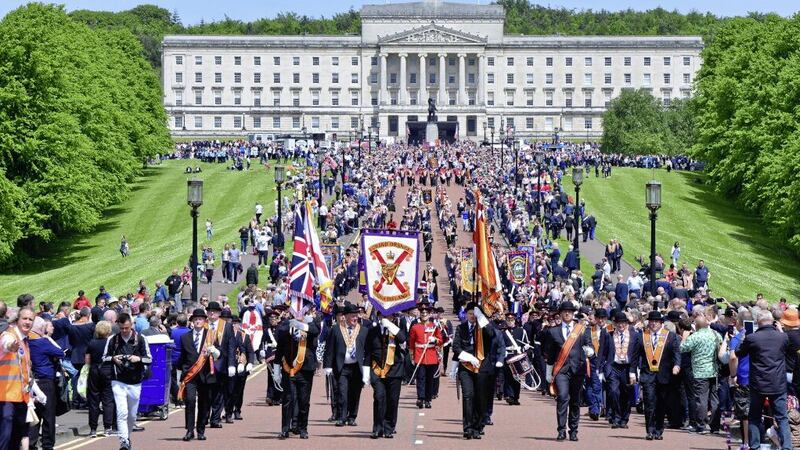SO Micheál Martin has finally made it. He has been elected taoiseach in the bizarre position of having made a mess of the February election, of being the least popular of the three main party leaders and having just presided over the collapse of Fianna Fáil support which is now teetering between 13 per cent and 14 per cent in opinion polls.
He's also made a mess of allocating Cabinet posts leaving his party in the west seething. One Mayo newspaper, the Western People, headlined it 'A Cabinet Fit for Cromwell'.
On the other hand one constituency - one constituency, mark you - by a strange coincidence Cork South Central, has three Cabinet ministers.
However, if he made a mess of the geographical spread for purely party political reasons he also gave a clear sign of his priorities when it came to the 'Taoiseach's eleven' as they call it, the Seanad seats in the taoiseach's gift.
There were certain constraints. The Programme for Government stipulated at least half of them had to be women.
The deal hammered out divided the spoils four apiece for Fianna Fáil and Fine Gael, two for the Greens and one Independent.
The Independent seat went to a representative from the Traveller community; all the other seats were party political. There was no place for a northerner.
Instead, both Martin and Varadkar chose mostly people who had been rejected by the voters in February. As a final two finger gesture to the voters, Varadkar insisted on having Regina Doherty appointed Leader in the Seanad.
The gaffe-prone Doherty was a failure as Minister for Social Protection, lost her seat in Meath East, and is not the sharpest member of the Oireachtas.
The selection, unashamedly with a view to these has-beens winning a Dáil seat in the next election, was more than a missed opportunity.
The failure to appoint a northerner is one thing, but the failure to use the chance to select a unionist is more significant. It demonstrates precisely where the north lies in Martin's to-do list: nowhere.
Ian Marshall, in 2018 the first unionist to be elected to the Seanad with the support of Sinn Féin, was right to be angry and frustrated at the deliberate exclusion of unionists.
He said he was "astonished" at the omission. He added that it meant Fianna Fáil's "commitment to a 'shared island' was a farce."
Not entirely accurate. In fact it's calculated hypocrisy, verbal republicanism which has been the hallmark of Fianna Fáil taoisigh since 1932.
As Marshall said, "How can you have a shared island when you only talk to yourself?" Marshall, who was a committed, eloquent and articulate member of the Seanad concluded that, "This a huge missed opportunity and sends a very clear message to the unionist community that they have no role play down south."
As far as both Martin and Varadkar were concerned, when it came to unionist representation in the south they calculated it is merely superfluous window dressing compared to promoting failed nonentities from their own parties.
They couldn't care less about the damage done by excluding a willing and able unionist voice like Marshall's who followed in the line of distinguished unionist contributors to the Oireachtas such as Sam McAughtry, Gordon Wilson and Dr John Robb.
The hypocrisy of what used to be the two largest parties in the south will be demonstrated conclusively by the meaningless 'unit' in the Taoiseach's Office designed "to work towards a consensus on a shared island" - a non-starter as Martin's Seanad decisions as taoiseach made clear.
It swerves away from the only route laid out in the Good Friday Agreement for establishing Irish unity; that is concurrent referendums in both parts of the island. That's what they should be working towards, but Martin couldn't even bring himself to use the phrase "shared Ireland" in the original Fianna Fáil policy document. Republican Party mar dhea.










